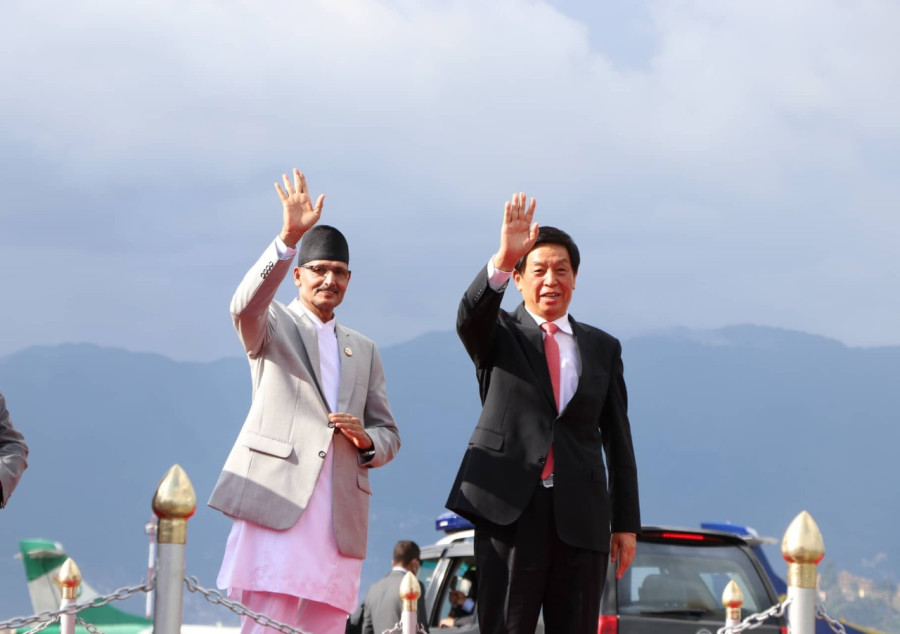Editorial
Untimely whispers
As a high-level leader from the north visits Nepal, we must ask when the border gates will fully open for trade.
Nepali culture generally forbids one from speaking ill of guests. And if the guests happen to be of high stature—invited by a high-level host at that—the less said, the better. But then, if the arrival occurs at a crucial juncture and carries more meaning than it would at other times, it naturally raises eyebrows. The second iteration of federal and provincial elections is just over two months away. Ideally, this is a time for Nepal's top leadership to avoid contact with external forces—especially those with whom we have substantial geopolitical concerns—to ensure that they are insulated from external influence even as they bicker internally on political issues. But then, expecting leaders to care for meanings seems too much to ask of them.
The ongoing visit by an influential Chinese leader gives the impression that the Chinese fixation on a united communist force in Nepal has not fizzled out just yet. Or so it seems—going by the timing of the visit. Li Zhanshu, a close ally of Chinese President Xi Jinping and No. 3 member of the Politburo Standing Committee of the Chinese Communist Party, the top decision-making body of China, landed in Kathmandu on Monday on a three-day visit. Li is here at the invitation of Speaker Agni Prasad Sapkota and is meeting the who's who of Nepal's top political leadership—President Bidya Devi Bhandari, Prime Minister Sher Bahadur Deuba, Foreign Affairs Minister Narayan Khadka, Maoist Centre chief Pushpa Kamal Dahal and UML chief KP Sharma Oli.
The visit could have waited just a few months until the elections were over, and a new government came with a fresh mandate to make significant policy interventions on issues of multi-faceted cooperation with neighbouring countries. Guests are guests; they will come over anytime they are invited and will use every opportunity they get to make a point on geopolitical interests. As China seeks to gain a foothold in South Asia, it would undoubtedly be happy to hold high-level meetings with Nepali leaders. It is for the Nepali leaders to decide what is best for us, but they seem incorrigible in their immaturity when navigating the labyrinths of geopolitics.
When the visit comes to a close, big talks will be made on having taken Nepal-China relationships to new and greater heights, and so on, as per tradition. The same old passages from the tattered minutes of high-level meetings will be relayed to the media and the public. But if there is anything of utmost interest to the Nepalis, it is the question of when the goods trucks stationed at the Nepal-China border will be let in. The Covid-19 pandemic, the apparent reason for the border impasse, is already over two and a half years old. The goods are getting old and rotting in the containers even as the Nepali traders are getting frustrated and bankrupt. What the Nepalis care about the most at the moment is the facilitation at the border so they can get back into the business. As a goodwill gesture on the eve of the Chinese Speaker's Nepal tour, a few trucks with consumer goods have reportedly been allowed to enter Nepal. If the border gates can be opened for those many trucks, why can't they be opened for all the trucks stuck there?
The Nepali leaders who will be conversing with Li should pointedly ask what is stopping the Chinese from opening their borders. We cannot talk big if the people on the ground are suffering due to a neighbour’s inexplicable reluctance to open its exit gates. And this time around we most certainly should not be convinced by facile promises.




 16.12°C Kathmandu
16.12°C Kathmandu














